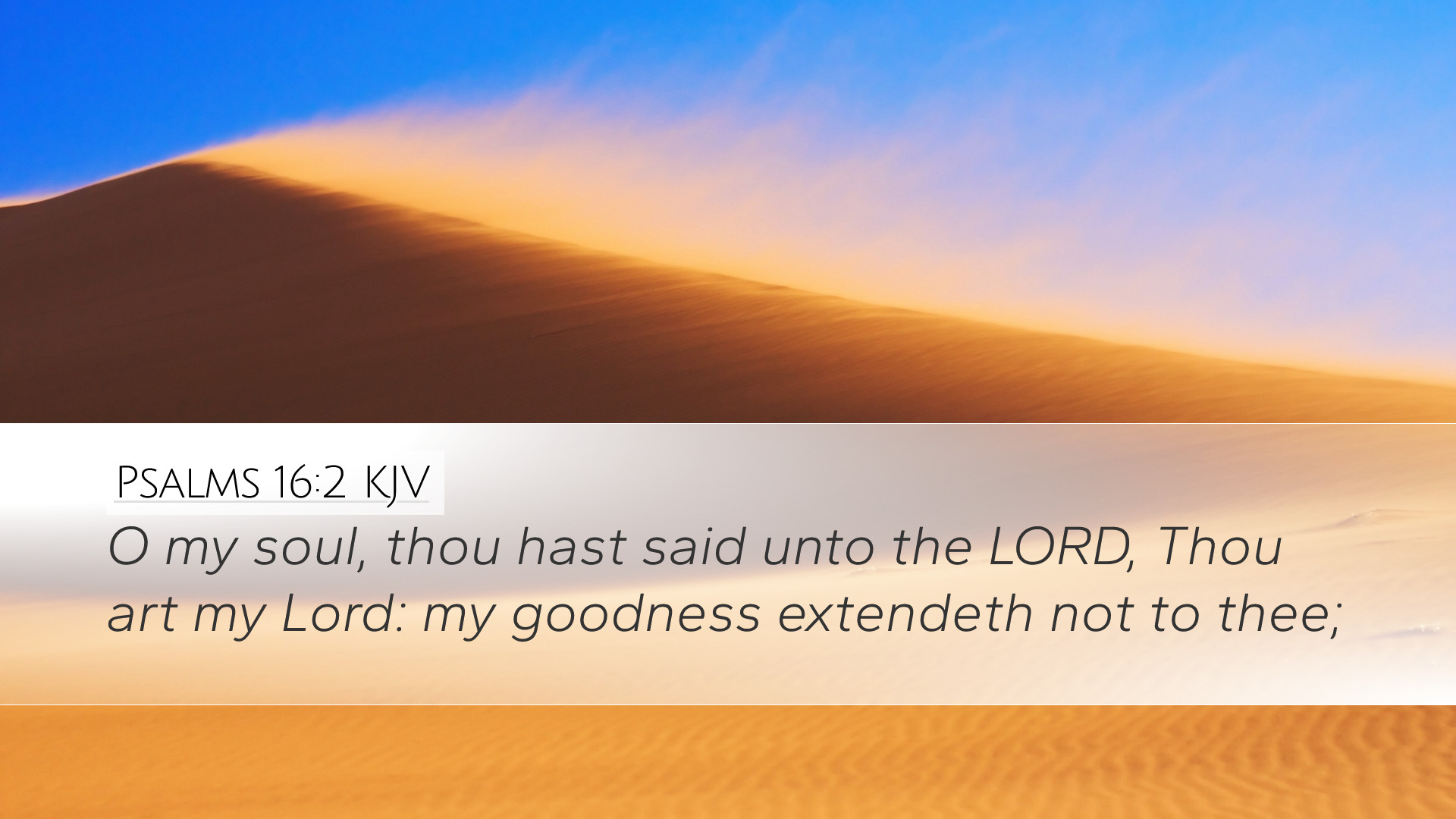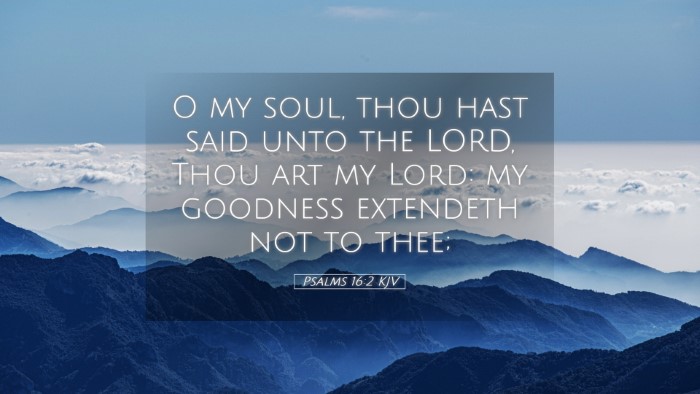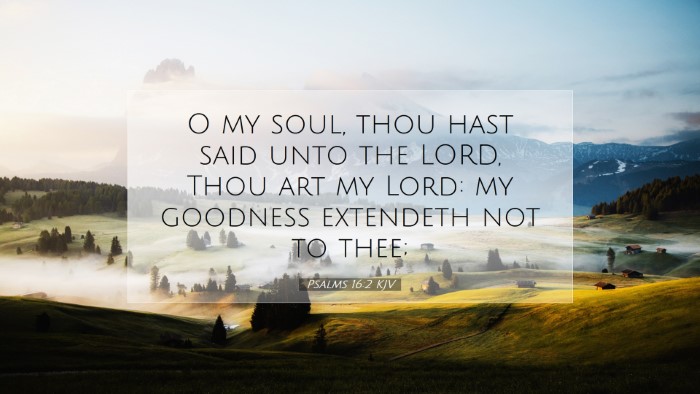Commentary on Psalms 16:2
Verse: "O my soul, thou hast said unto the Lord, Thou art my Lord: my goodness extendeth not to thee."
Introduction
This verse is a profound expression of the psalmist's relationship with God. It highlights themes of divine sovereignty and human humility, essential elements in the discourse of faith and dependence on God. Here, we examine insights from several esteemed public domain commentators to deepen our understanding of this text.
Verse Exegesis
Psalms 16:2 comprises a heartfelt declaration and a theological reflection on the nature of God and humanity. The psalmist acknowledges God as Lord, which signifies authority, while also recognizing the limitations of human goodness.
Matthew Henry's Commentary
Matthew Henry emphasizes the psalmist's declaration, "Thou art my Lord." He observes that this expression conveys a personal relationship with God, reflecting a profound trust and submission. Henry interprets the psalmist's acknowledgment of his own "goodness" as a stance of humility before God. He notes:
- Personal Reliance: The psalmist distinctly views God as his Lord, indicating a reliance that goes beyond mere duty. This sets a tone for a personal relationship built on faith.
- Recognition of Limitations: By stating that his goodness extends not to God, the psalmist is conveying that human merit is insufficient in the presence of divine holiness. This serves as a reminder that all goodness ultimately comes from God.
Albert Barnes' Commentary
Albert Barnes provides a different angle, focusing on the theological implications of the term "Lord." He asserts that this designation speaks to God's absolute authority and our need for submission. Barnes explains:
- Divine Authority: The title "Lord" is used to invoke the supremacy of God. The psalmist recognizes that all blessings originate from God's will.
- Humility Before God: The phrase "my goodness extendeth not to thee" depicts humility. It shows an understanding that any moral quality or righteousness attributed to the psalmist cannot compare to God’s infinite holiness.
Adam Clarke's Commentary
Adam Clarke dives into the existential aspect of the verse, noting the conversation within the psalmist's own soul. He reflects on how the psalmist grapples with his own standing before God:
- Inner Dialogue: Clarke points out that "O my soul" indicates an internal dialogue, emphasizing the importance of self-examination and introspection in faith.
- Dependency on God: Clarke argues that the psalmist’s acknowledgment of God’s lordship cultivates a lifestyle of dependency, recognizing that all spiritual vitality is derived from God.
Theological Implications
Psalms 16:2 encapsulates fundamental theological concepts that are relevant for pastors, students, theologians, and Bible scholars today. It invites deeper reflection on several key themes:
- Divine Sovereignty: The acknowledgment of God as Lord speaks to His sovereignty over all creation. There is a call to submit to this authority in both personal and communal worship.
- Human Limitations: Understanding that our goodness does not extend to God emphasizes the need for grace. It illuminates the human condition's brokenness and the necessity of divine salvation.
- The Nature of Faith: A personal faith is characterized by a relationship with God where believers recognize both His greatness and their own insufficiency. This fosters an attitude of gratitude and worship.
Practical Applications
For those seeking to apply the insights gleaned from Psalms 16:2, consider the following:
- Develop Personal Intimacy: Encourage the congregation or study group to engage in personal prayer and reflection, allowing individuals to express their relationship with God genuinely.
- Teach Humility: Highlight the importance of humility in Christian life. Emphasize that recognizing our limitations can lead to a more profound dependence on God's grace and mercy.
- Promote a Theology of Grace: Use this verse as a basis for discussions around grace, salvation, and divine love. This reinforces the core belief that it is God’s goodness that sustains us, not our own.
Conclusion
Psalms 16:2 serves as a pivotal verse in understanding the dynamics of faith, human limitations, and divine authority. By combining insights from Matthew Henry, Albert Barnes, and Adam Clarke, we uncover a rich tapestry of theological and practical applications that encourage deeper worship, reliance on God, and a humble disposition before our Creator. As we grapple with our understanding of goodness and God’s ultimate lordship, may our faith be strengthened and our hearts drawn closer to His presence.


